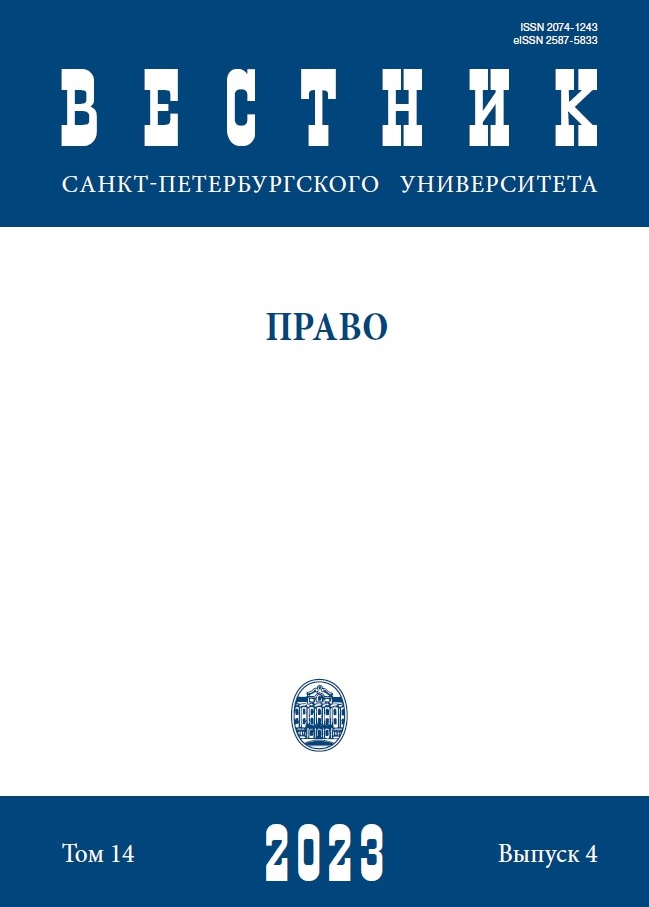Violation of official discipline: The principle of nulla poena sine lege and the effectiveness of disciplinary responsibility
DOI:
https://doi.org/10.21638/spbu14.2023.406Abstract
The article analyzes the problem of the effectiveness of disciplinary responsibility from the point of view of implementation in the legislation on the public service of the principle of nulla poena sine lege. The author notes that a necessary condition for the social effectiveness of the institution of disciplinary responsibility is the achievement of the goals of its establishment— the prevention of disciplinary offenses. A necessary condition here is the principle of legal certainty, according to which the law establishing legal liability must be predictable to the extent that the subjects can foresee the legal consequences of their actions. From this position, the work analyzes the concept of a disciplinary offense, as well as its transformation in the field of public relations. The issue of duplication of the grounds for termination of the contract is considered as a measure of disciplinary responsibility and not disciplinary dismissal. The author justifies the conclusion that the contract cannot be terminated for a guilty unlawful act outside of disciplinary proceedings, bypassing the rules for applying disciplinary sanctions. Moral and ethical norms included in the wording of a disciplinary offense (for example, violation of the oath of a civil servant) deserve special attention. This is due to the desire of the legislator to outline as wide a range of acts as possible that constitute disciplinary offenses, including moral, ethical and other social offenses. However, such an approach only leads to inflation of disciplinary misconduct and devaluation of disciplinary responsibility in general.
Keywords:
disciplinary responsibility, civil service, disciplinary offense, wrongfulness, legal certainty, contract, dismissal, oath
Downloads
References
Downloads
Published
How to Cite
Issue
Section
License
Articles of "Vestnik of Saint Petersburg University. Law" are open access distributed under the terms of the License Agreement with Saint Petersburg State University, which permits to the authors unrestricted distribution and self-archiving free of charge.






